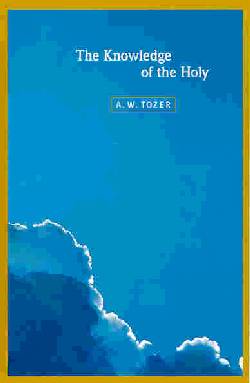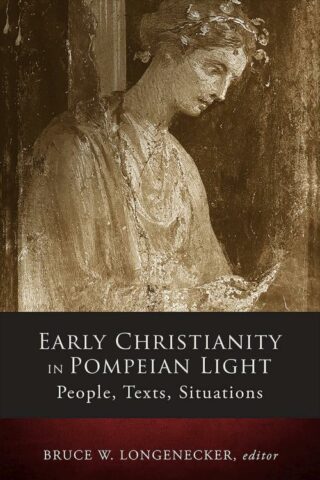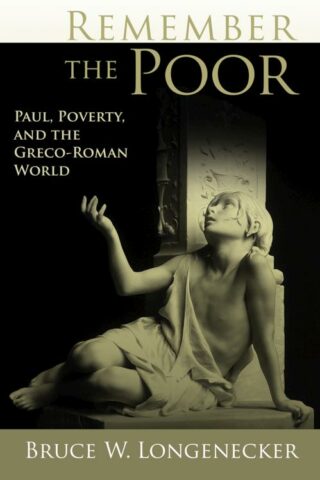Bruce Longenecker
Showing all 2 resultsSorted by latest
-
Early Christianity In Pompeian Light
$81.66Editor’s Preface
Envisioning Situations
1. Growing Up Female In The Pauline Churches-Carolyn Osiek
2. Nine Types Of Church In Nine Types Of Space In The Insula Of The Menander-Peter Oakes
3. The Empress, The Goddess, And The Earthquake-Bruce W. LongeneckerEnhancing Texts
4. Powers And Protection In Pompeii And Paul-Natalie R. Webb
5. Violence In Pompeiian/Roman Domestic Art As A Visual Context For Pauline And Deutero-Pauline Letters-David L. Balch
6. Spheres And Trajectories-Jeremiah N. BaileyBibliography
Additional Info
Scholars of early Christianity are awakening to the potential of Pompeii’s treasures for casting light on the settings and situations that were commonplace and conventional for the first urban Christians. The uncovered world of Pompeii, destroyed by the eruption of Mount Vesuvius in 79 C.E., allows us to peer back in time, capturing a heightened sense of what life was like on the ground in the first century – the very time when the early Jesus-movement was beginning to find its feet. In light of the Vesuvian material remains, historians are beginning to ask fresh questions of early Christian texts and perceive new contours, nuances, and subtleties within the situations those texts address.The essays of this book explore different dimensions of Pompeii’s potential to refine our lenses for interpreting the texts and situations of early Christianity. The contributors to this book (including Carolyn Osiek, David Balch, Peter Oakes, Bruce Longenecker, and others) demonstrate that it is an exciting time to explore the interface between the Vesuvian contexts and the early Jesus-movement.
Add to cartin stock within 3-5 days of online purchase
-
Remember The Poor
$38.99Combining historical, exegetical, and theological interests, Bruce Longenecker here dispels the widespread notion that Paul had little or no concern for the poor.
Longnecker’s analysis of Greco-Roman poverty provides the backdrop for a compelling presentation of the importance of care for the poor within Paul’s theology and the Jesus-groups he had established. Along the way, Longenecker calls into question a variety of interpretive paradigms and offers a fresh vision in which Paul’s theological resources are shown to be both historically significant and theologically challenging.
Add to cartin stock within 3-5 days of online purchase












